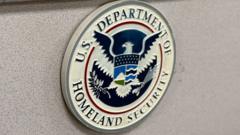Lee Hsien Yang, the son of Singapore’s founding Prime Minister Lee Kuan Yew, has made headlines by announcing that he has received political asylum in Britain. This development comes against a backdrop of familial disputes and accusations of political persecution against his brother, former Prime Minister Lee Hsien Loong.
Lee Hsien Yang Granted Asylum in Britain Amid Family Feud

Lee Hsien Yang Granted Asylum in Britain Amid Family Feud
Lee Hsien Yang accuses his brother, former Singapore Prime Minister, of political persecution, stirring a significant family and national controversy.
In a statement shared via Facebook, Lee Hsien Yang disclosed that British authorities deemed him at risk of political persecution should he return to Singapore, where his brother remains a central political figure. He described his situation as unfathomable, expressing sadness over becoming a refugee from his ancestral homeland.
His asylum application, filed in June 2022, was approved in August. The UK government’s assessment indicated that Lee Hsien Yang has a “well-founded fear of persecution,” allowing him to reside in Britain for five years, with the option to seek an extension thereafter.
The conflict within the Lee family is emblematic of broader political tensions in Singapore. Lee Hsien Yang’s assertions have not gone uncommented; Singapore's government firmly rejected his claims, labeling them as baseless and refuting any notion of persecution. A spokesperson emphasized that the family is free to return to Singapore at any time.
This unfolding drama not only highlights personal grievances within one of Southeast Asia's most prominent political families but also raises questions about political dissent and freedom of expression in Singaporean society, where the ruling People's Action Party has held power since independence.
As the situation develops, it remains to be seen how this family feud will impact Singapore's political landscape and perceptions of its government’s approach to dissent.
The political ramifications of Lee Hsien Yang's asylum are likely to reverberate beyond personal animosities, potentially influencing public opinion and policy discourse within Singapore and the region.
His asylum application, filed in June 2022, was approved in August. The UK government’s assessment indicated that Lee Hsien Yang has a “well-founded fear of persecution,” allowing him to reside in Britain for five years, with the option to seek an extension thereafter.
The conflict within the Lee family is emblematic of broader political tensions in Singapore. Lee Hsien Yang’s assertions have not gone uncommented; Singapore's government firmly rejected his claims, labeling them as baseless and refuting any notion of persecution. A spokesperson emphasized that the family is free to return to Singapore at any time.
This unfolding drama not only highlights personal grievances within one of Southeast Asia's most prominent political families but also raises questions about political dissent and freedom of expression in Singaporean society, where the ruling People's Action Party has held power since independence.
As the situation develops, it remains to be seen how this family feud will impact Singapore's political landscape and perceptions of its government’s approach to dissent.
The political ramifications of Lee Hsien Yang's asylum are likely to reverberate beyond personal animosities, potentially influencing public opinion and policy discourse within Singapore and the region.




















